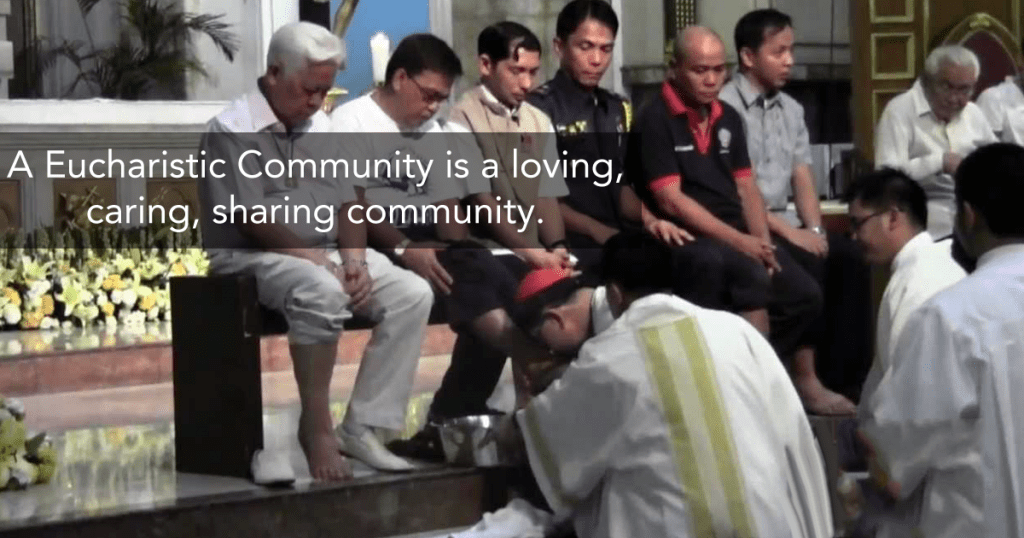The United States Bishops offer a beautiful reflection Eucharist “Body of Christ, Broken for the World.” As I read the short two-page handout I could not help but see the Eucharistic underpinnings of Systemic Change. What do you think?

Eucharist-inspired love allows us to live out our Christian vocation.
Pope John Paul II writes that our ability to go and do likewise in imitation of Jesus’ washing of the disciples’ feet is the “criterion by which the authenticity of our Eucharistic celebrations is judged” (Mane Nobiscum Domine [Stay with us, Lord], no. 28). “Eucharistic worship,” he says, is the expression of “the love that springs up within us from the Eucharist”— that love which is “the authentic and deepest characteristic of the Christian vocation” (Dominicae Cenae, no. 5).
The Eucharist challenges us to recognize and confront structures of sin.
The Risen Christ in the Eucharist acts as “a compelling force for inner renewal, an inspiration to change the structures of sin in which individuals, communities and at times entire peoples are entangled” (Pope John Paul II, Dies Domini [On Keeping the Lord’s Day Holy], no. 73). These structures include racism, violence, injustice, poverty, exploitation, and all other systemic degradation of human life or dignity. As Pope Benedict XVI reminds us, our “fraternal communion” in the Eucharist leads to “a determination to transform unjust structures and to restore respect for the dignity of all men and women, created in God’s image and likeness” (Pope Benedict XVI, Sacramentum Caritatis [Sacrament of Charity], no. 89).
The Eucharist prepares us for mission.
In the face of the sin and injustice we see present in our communities and in our world, the Eucharist “plants a seed of living hope in our daily commitment to the work before us,” challenging us to live “Eucharistic” lives. It affrms our role as citizens and as men and women in various professions at different levels of society in “contributing with the light of the Gospel to the building of a more human world, a world fully in harmony with God’s plan” (Ecclesia de Eucharistia, no. 20).
The Eucharist propels us forth to transform the world.
The Eucharist “increases, rather than lessens, our sense of responsibility for the world today.” Christ in the Eucharist calls us to build “a more human world, a world fully in harmony with God’s plan” (Ecclesia de Eucharistia, no. 20). Filled with awe for all we have received in Christ’s self-gift, we respond with service and works of charity. We act to transform unjust structures, policies, and laws that degrade human life and dignity.
Here are some questions they suggest we reflect on before the Eucharist…
- What issues affecting your community and the world today weigh deeply on your heart?
- Spend some time bringing these concerns before the Blessed Sacrament.
- During your time before Christ in the Eucharist, can you sense his compassion? Love? Desire to transform all that opposes human life and dignity?
- What gifts has God, the Father, given you? How might he be asking you to use these gifts in the service of others?
- How does the Eucharistic meal compel you to care for those who are hungry?
- How might the Holy Spirit be moving you to join with others to respond to problems in your family, neighborhood, or community?
Read the full reflection or download it at http://www.usccb.org/about/justice-peace-and-human-development/upload/eucharist-social-mission.pdf







0 Comments